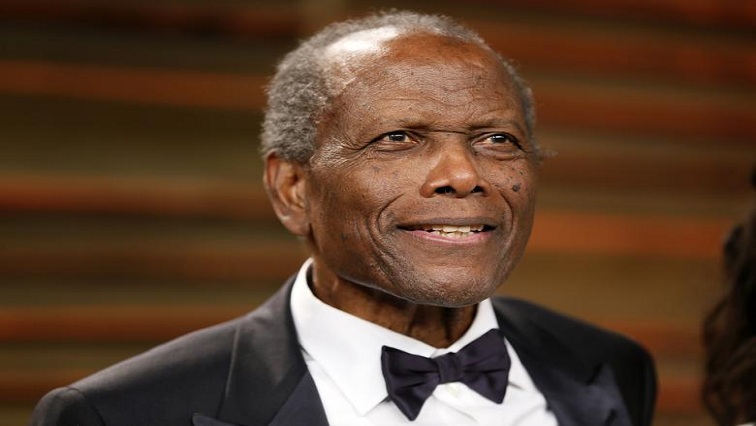On Friday, a wreath of flowers was laid on the star on the Walk of Fame for actor Sidney Poitier, who has died at the age of 94.
Poitier broke through racial barriers as the first Black winner of the best actor Oscar for his role in “Lilies of the Field,” and inspired a generation during the civil rights movement.
Dominique Diprima, who was on her way to lay her own flowers on his star, told Reuters “I mean, he absolutely broke down doors which we’re still trying to break down today. You know, you look at what’s going on with the Golden Globes and Oscars So White and everything we’re still fighting for, for equality in Hollywood and this man was like our first leading man. He was a movie star when we were only being portrayed as slaves and criminals and I think he did it with dignity and he did it with grace and he did it with artistry.”
Los Angeles resident Byron Segraves, who visited the star, said “He was such a brilliant actor. He comes from that old school, that Paul Newman school of acting and he never came across as crass. He just came across as authentic. He always did his homework and I thought he chose a lot of great roles and I think he’ll be greatly missed by the community.”
David Rubin, the president of AMPAS (Academy of Motion Pictures Arts and Sciences), which organize the Oscars, also paid tribute.
He looked back at Poitier’s iconic win for Best Actor at the Oscars for his role in “Lilies of the Field”. “Groundbreaking events have reverberations,” said Rubin, adding “It became a possibility for people who had previously felt that doors were closed and ceilings were lowered so it was a triumphant moment and a signal of opportunity at a time when we were in the midst of a racial reckoning in this country and in the midst of a real civil rights movement so it was sort of a conflation of all the right moments to make it a transitional watershed.”
Poitier created a distinguished film legacy in a single year with three 1967 films at a time when segregation prevailed in much of the United States.
In “Guess Who’s Coming to Dinner” he played a Black man with a white fiancee and “In the Heat of the Night” he was Virgil Tibbs, a Black police officer confronting racism during a murder investigation.
He also played a teacher in a tough London school that year in “To Sir, With Love.” Rubin said “A charismatic presence is a result of a million different factors but he was really sort of irresistable on film and I think it had to do with a certain integrity and a focus and a dignity, even at a time when people’s dignity, particularly people of color, was being incredibly challenged.
He held onto his and drew people to him as a result.”
Poitier also won an honorary Oscar in 2002 for his contribution to cinema.
The upcoming Oscars in March will also undoubtedly feature Poitier, according to Rubin.
He said “There aren’t enough programmes to honor that man but we will certainly do our best on March 27 because he meant so much to all of the members of the Academy, to movie audiences everywhere and I think beyond motion pictures, to people who know that we are moving toward the logical extension of the positions he took throughout his life.”


